Unleavened Bread and the Second Passover
Published by Rob Skiba April 4, 2015 at 9:55 PM
It takes all of about 30 minutes of intentional research to prove that Christmas, Good Friday and Easter really have nothing whatsover to do with our Savior’s birth, death and resurrection. They are like Twinkies. As kids, we enjoyed eating them. But they have no nutritional value… and yet, they can still stay in us for a long time after eating them. Consuming a lot of them can only diminish our health, with cumulative negative effects.
Whereas, we have been given 8 Divinely ordained “Appointed Times” in the Sabbath and the Feasts of YHWH. They are all about our Savior: His birth, life, death, burial, resurrection, return, judgements and Millennial Reign. They are RICH in Spiritually nutritious ingredients, which can only make us healthier and stronger in our everlasting walk with YHWH.
This weekend, many are celebrating Passover. The elements used in that particular “moed” (appointed time) are so powerful and pregnant with multiple meanings related to both the deliverance of the Israelites from their bondage in Egypt through Moses as well as the deliverance of all men from the bondage of sin through our Messiah. The bitter herbs, which represent the bitterness of slavery and the burning distaste of sin. The lamb whose blood on the door prevents death, and of course the Lamb of YHWH who takes away our sins, giving us eternal life. The bruised, striped and pierced unleavened matza bread… wow! The practice was to take the middle piece (the Afikoman) in a collection of three, to break it and to hide a piece of it away. The father of the house was the one who usually hid it. Later, the children would seek after it. The one who finds it is then rewarded by the father. Do you see an interesting picture in that ancient practice? Yeshua, the second in the usual description of Father, Son and Holy Spirit, was broken and His body hidden away. Those who find Him who was broken for us are rewarded by the Father. And that’s just a little taste of what is in this one Feast!
WHAT KIND OF BREAD DID YESHUA BREAK AND EAT?
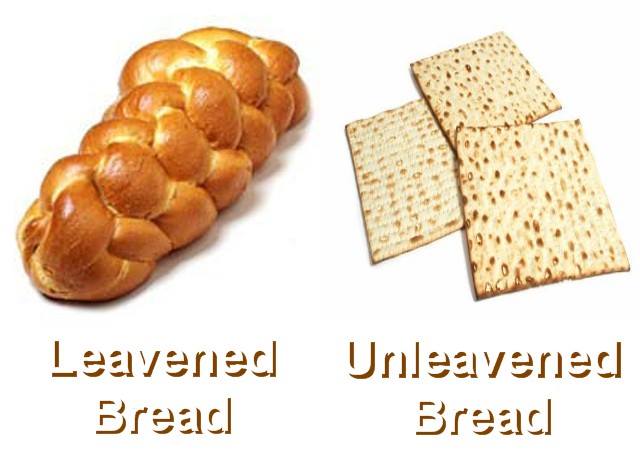
Some say that Yeshua did not eat unleavened bread because the Greek word used in the account of Him eating it is, “artos” which is a word that means “food, bread, loaf”. In the NASB, the word is used 71 times as “bread,” twice as “loaf”, as “loaves” 23 times, and as “meal” once. Thus, many will say, “See Jesus did NOT eat unleavened bread, but rather leavened bread (as in a loaf).”
I reject that view because the text says He ate a Passover meal…
Luke 22:
7 Then came the day of unleavened bread, when the passover must be killed. 8 And he sent Peter and John, saying, Go and prepare us the passover, that we may eat. 9 And they said unto him, Where wilt thou that we prepare? 10 And he said unto them, Behold, when ye are entered into the city, there shall a man meet you, bearing a pitcher of water; follow him into the house where he entereth in. 11 And ye shall say unto the goodman of the house, The Master saith unto thee, Where is the guestchamber, where I shall eat the passover with my disciples? 12 And he shall shew you a large upper room furnished: there make ready. 13 And they went, and found as he had said unto them: and they made ready the passover.
14 And when the hour was come, he sat down, and the twelve apostles with him. 15 And he said unto them, With desire I have desired to eat this passover with you before I suffer: 16 For I say unto you, I will not any more eat thereof, until it be fulfilled in the kingdom of God. 17 And he took the cup, and gave thanks, and said, Take this, and divide it among yourselves: 18 For I say unto you, I will not drink of the fruit of the vine, until the kingdom of God shall come. 19 And he took bread, and gave thanks, and brake it, and gave unto them, saying, This is my body which is given for you: this do in remembrance of me. 20 Likewise also the cup after supper, saying, This cup is the new testament in my blood, which is shed for you.
Sadly, this is where many Christians think Yeshua invented something new called “The Lord’s Supper” or “The Last Supper” or “Communion.” Well, if you read the above, you can plainly see that the context of what was taking place there was a Passover meal, which thus would have had the appropriate elements as perscribed in the Torah. What are those elements?
Exodus 12:
8 And they shall eat the flesh [of the lamb] in that night, roast with fire, and unleavened bread; and with bitter herbs they shall eat it.
Later we see…
Exodus 12:
14 And this day shall be unto you for a memorial; and ye shall keep it a feast to the LORD throughout your generations; ye shall keep it a feast by an ordinance for ever.
So, here we are told that the Feast is to be forever (which would mean it was not going to be done away with at the cross). And the elements required to do it are a lamb, unleavened bread and bitter herbs. Thus, Yeshua would have been eating the appropriate type of bread (i.e. unleavened bread) as that is what is and always was to be eaten at Passover.
What’s the deal with the Greek word “artos” then? Well, it seems rather simple to me. Unleavened bread is still bread. The fact that this is a Passover meal, makes the use of the adjective “unleavened” unneccesary. What’s interesting about this argument though is some people will say that the word that should have been used is “azumos” if He was indeed eating unleaved bread. Well, unlike “artos,” which is a noun, that word is nothing more than an adjective with an implied noun. The word simply means “unleavened” or “uncorrupted.” There is no noun there though. In other words, the word “bread” is not used, it’s inserted (as indicated by the word [bread] in brackets below):
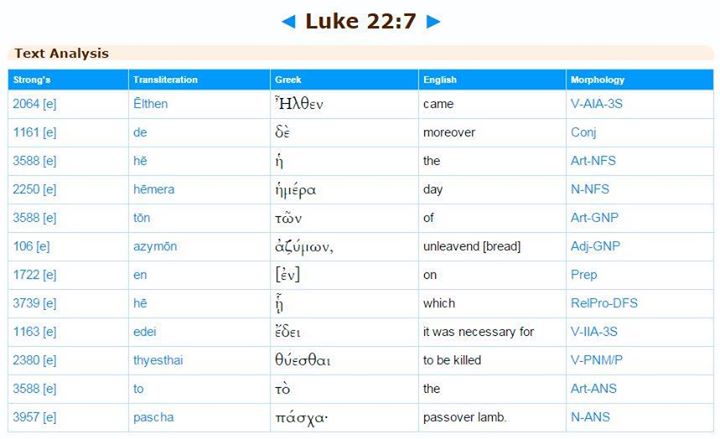
So, in the case of “unleavened bread” in Luke 22:7 for instance, you merely have a word that is an adjective with an implied noun. And in Luke 22:19, in the case of “bread” you have a noun, with an implied adjective (due to the nature of what was taking place – a Passover meal, done in accordance with Exodus 12:8).
The next question that often comes up is, “Did Yeshua really eat a Passover meal?” since He was the Passover Lamb and He was crucified during the same time that the Passover lambs were killed, which happened later – from 9am to 3pm at the Temple. Well, to me the Gospels cannot possibly be any clearer: He repeatedly states that He longed to eat the Passover meal with His disciples and that He did in fact do so. The confusion seems to come from our western understanding of days and the Hebrew used in the Torah as compared to our English translations. A woman named Maria Merola has done a wonderful job of explaining why Yeshua did in fact eat a Passover meal, even though by many standards, He did so “earlier” than others.
For the past 2,000 years, there has been an age-old controversy within the community of believers, whereby some have surmised that our Messiah did not actually “eat” a Passover meal with his disciples. They say that he merely ate the “Last Supper” and they rationalize that this could not have been a true Passover meal because they assume that the Passover Lambs had not been slaughtered yet the night before he died.
But did you know that there is no such thing in the scriptures as a “Last Supper?” Many have wondered how our Messiah could have eaten the Passover the night before he died and yet, he also became the Passover the following evening.
Well, there is a very simple explanation for this. You see, the Towrah says that Passover is on the 14th “at evening” but in Hebrew it is “ben ha’ereb” which means “between the two evenings.”
Shemoth (Exodus) 12:18 In the first month, on the fourteenthday of the month atevening, you shall eat unleavened bread, until the one and twentieth day of the month atevening.
Wayyiqra (Leviticus) 23:5 In the fourteenthday of the first month atevening is YHWH’s Passover.
Bemidbar (Numbers) 9:3 In the fourteenth day of this month, at evening, you shall keep it in his appointed season: according to all the rites of it, and according to all the ceremonies thereof, shall you keep it.
As you can see by the verses above, in English, it would appear to some that this would be at the tail-end of the 14th of Abib (three hours before the 15th of Abib).
But let us take a look at the following verse as it reads in Hebrew:
Shemoth (Exodus) 12:6 And you shall keep it [the lamb] up until the fourteenth day of the same month: and the whole assembly of the congregation of Yisra’elshall kill it in the evening.
The phrase above “in the evening” in Hebrew reads “ben ha’ereb” which literally means “between the two evenings.” Also note, that they were to keep the lamb “up until” the fourteenth day of Abib. This means that the moment that the sun went down on the thirteenth of Abib, they were to kill it between the two evenings on the fourteenth day of Abib.
The word “in” is #996 – ben: between, in the midst of. The word “evening” is #6153 – ereb: evening, night, sunset, dusk. But this word “ereb” comes from another root word:
#6150 `arab aw-rab’ a primitive root; from #6148; through the idea of covering with a texture; to grow dusky at sundown:–be darkened, (toward) evening.
#6148 `arab aw-rab’ a primitive root; to braid, i.e. intermix; technically, to traffic (as if by barter); also or give to be security (as a kind of exchange):–engage, (inter-)meddle (with), mingle (self), mortgage, occupy, give pledges, be(-come, put in) surety, undertake.
As you can see, this word for “evening” comes from the root words that mean “to mingle, intermix.” When the light mixes with the darkness then it becomes “dusk,” and that is precisely what the word “evening”means. Hence, between “two evenings” means that there would be two periods of dusk within a 24-hour period on the 14th day of the 1st Hebrew month of Abib. The commandment to kill the Passover Lamb between “two evenings” would then imply that anytime within that 24-hour period, a lamb could be slaughtered.
For more, see her full article here: http://doubleportioninheritance.blogspot.com/2012/04/messiah-ate-real-passover-night-before.html
Needless to say, I am fully convinced that Yeshua did in fact eat a Passover meal and that He broke unleavened bread (we should also note that regular bread tears, it doesn’t “break”). All one has to do is look at a piece of unleavened bread and the illustration of it being our Lord’s body cannot be more perfect:
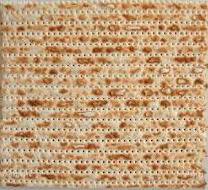
Psalm 22:
15 My strength is dried up like a potsherd; and my tongue cleaveth to my jaws; and thou hast brought me into the dust of death.
16 For dogs have compassed me: the assembly of the wicked have inclosed me: they pierced my hands and my feet.
Isaiah 53:
5 But he was wounded for our transgressions, he was bruised for our iniquities: the chastisement of our peace was upon him; and with his stripes we are healed.
The bruising, striping and pierced holes of unleavened bread reminds me of the Shroud of Turin. I personally believe it is the authentic burial shroud of our Savior (the wrapping cloth of the Passover Afikomen). Whether or not this is true, I think the resemblance is uncanny, right down to the burn marks surrounding the image of the striped and pierced man:
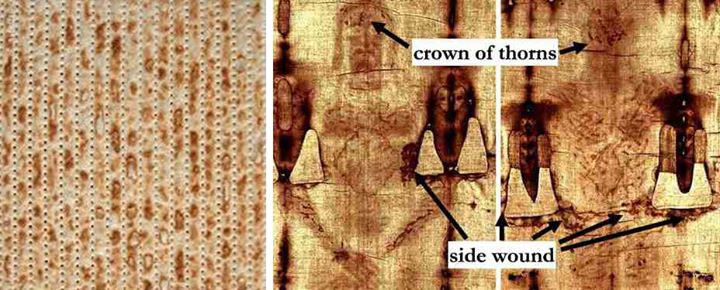
Consider also that in the OT, leaven could not be offered on the altar because leaven spoils and corrupts, which would thus make leavened food an unsuitable offering to a Holy God.
Leviticus 2:11‘No grain offering which you bring to the Lord shall be made with leaven, for you shall burn no leaven nor any honey in any offering to the Lord made by fire.
Leviticus 6:17 It shall not be baked with leaven. I have given it as their portion of My offerings made by fire; it is most holy, like the sin offering and the trespass offering.
Leviticus 7:12 If he offers it for a thanksgiving, then he shall offer, with the sacrifice of thanksgiving, unleavened cakes mixed with oil, unleavened wafers anointed with oil, or cakes of blended flour mixed with oil.
Leviticus 10:12 And Moses spoke to Aaron, and to Eleazar and Ithamar, his sons who were left: “Take the grain offering that remains of the offerings made by fire to the Lord, and eat it without leaven beside the altar; for it is most holy.
We know that Yeshua likens leaven to “false doctrine” when He rebukes the Pharisees. Paul also likens leaven to sin, malice and wickedness:
1 Corinthians 5:
1 It is reported commonly that there is fornication among you, and such fornication as is not so much as named among the Gentiles, that one should have his father’s wife.
2 And ye are puffed up, and have not rather mourned, that he that hath done this deed might be taken away from among you.
3 For I verily, as absent in body, but present in spirit, have judged already, as though I were present, concerning him that hath so done this deed,
4 In the name of our Lord Jesus Christ, when ye are gathered together, and my spirit, with the power of our Lord Jesus Christ,
5 To deliver such an one unto Satan for the destruction of the flesh, that the spirit may be saved in the day of the Lord Jesus.
6 Your glorying is not good. Know ye not that a little leaven leaveneth the whole lump?
7 Purge out therefore the old leaven, that ye may be a new lump, as ye are unleavened. For even Christ our passover is sacrificed for us:
8 Therefore let us keep the feast, not with old leaven, neither with the leaven of malice and wickedness; but with the unleavened bread of sincerity and truth.
As the oil anointed Son of Man, with PURE doctrine, no malice and no wickedness who “knew no sin,” we can know that Yeshua NEVER “became sin” – rather He became the sinLESS “sin offering” for us. There is a BIG difference between “becoming sin” and “being the sin OFFERING.” Leaven is not accepted as an offering. Therefore, He had to have remained UNleavened in order to be the Torah fulfilling offering for the sin of the world. Thus, there is NO WAY, Yeshua would have held up leavened bread (which represents FALSE doctrine, malice, wickedness and sin) and said, “THIS is [present tense] my body.”
OK. Now, here is something that has really touched my heart as I’ve been celebrating Passover these past 5 years: The provision for a second Passover. This is a provision for those who may have become ritually unclean, making them unable to partake in the normal Passover.
Numbers 9:
9 And the Lord spake unto Moses, saying,
10 Speak unto the children of Israel, saying, If any man of you or of your posterity shall be unclean by reason of a dead body, or be in a journey afar off, yet he shall keep the passover unto the Lord.
11 The fourteenth day of the second month at even they shall keep it, and eat it with unleavened bread and bitter herbs.
12 They shall leave none of it unto the morning, nor break any bone of it: according to all the ordinances of the passover they shall keep it.
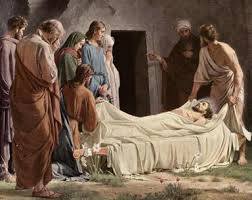
It says that if you become unclean by reason of a dead body or if you are away that you can still keep the Passover by doing it 30 days later. Why does this touch my heart? Because there were a number of people who would have come to or been in Jerusalem to celebrate the Passover during the time of Yeshua’s Passion. Namely, Nicodemus and Joseph of Arimathea. These were influential men, who would have been honored guests at any Passover meal. However, they, along with the women (and probably the disciple John), had become unclean due to their handling of our Savior’s body after He had died. Everyone who participated in the handling of His body would have been unable to participate in something they not only loved to do, but were actually commanded to do in all of their generations forever. How amazing that wayyyyy back during the time of the Exodus a provision was made – I believe prophetically just for them! Not only that, but remember, Yeshua stuck around for 40 days after His resurrection, which means, they would have been able to have the very first Passover, truly done in remembrance of Him… with Him! Just imagine how all of the pieces would have come together for them. How truly awesome is that??
We serve an amazing God, who has given us a rich diet of REAL Holy-days to celebrate. Those “appointed times” are all about our Savior. I want to encourage you to ditch the junk food of “Christianized paganism” and start to understand the truly Holy-days of YHWH. They have revolutionized the way I understand both the Scriptures and the One about Whom they are written. I am more than cerain they will do the same for you too. Plus, since we will be doing the Feasts of YHWH every year for a thousand years anyway, we might as well start practicing them now, right? And since we will NOT be doing Christmas, Good Friday and Easter, we might as well stop doing them now. Just a thought.
Yeshua was the only unleavened bread to rise!
Shalom.
– Rob Skiba
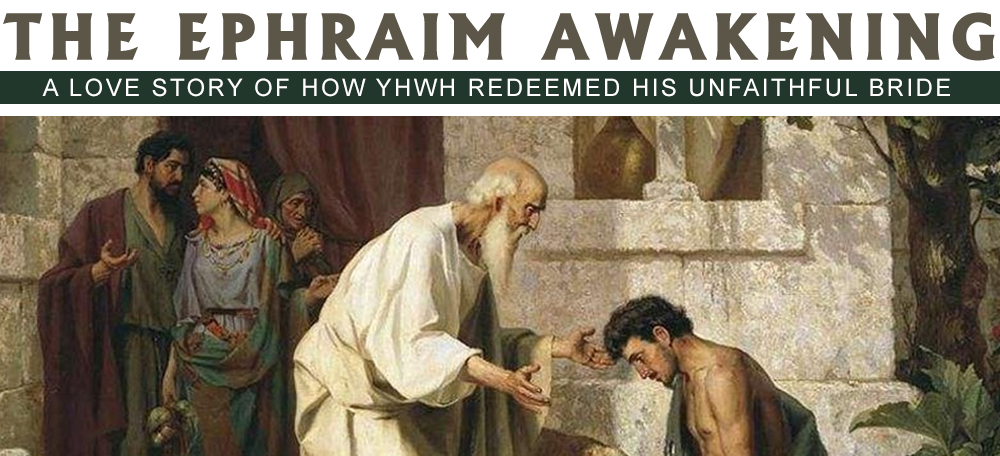

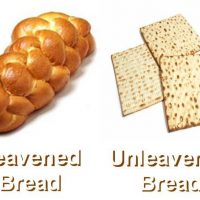

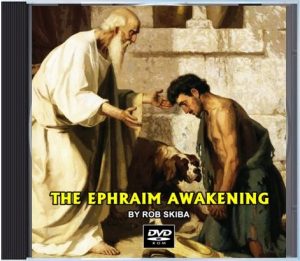


Leave a Reply